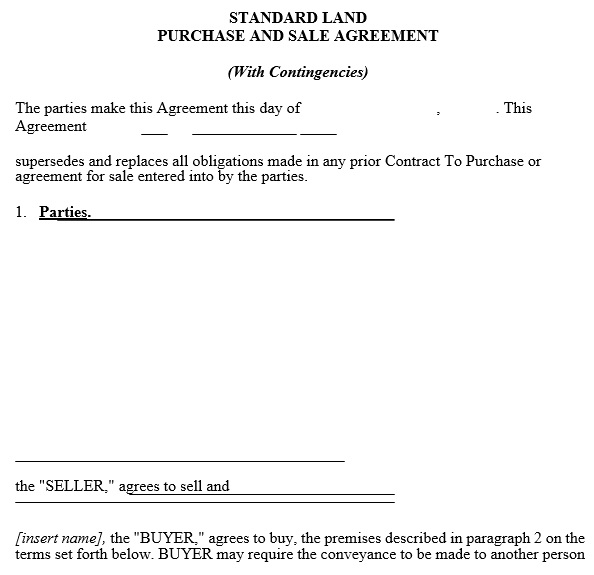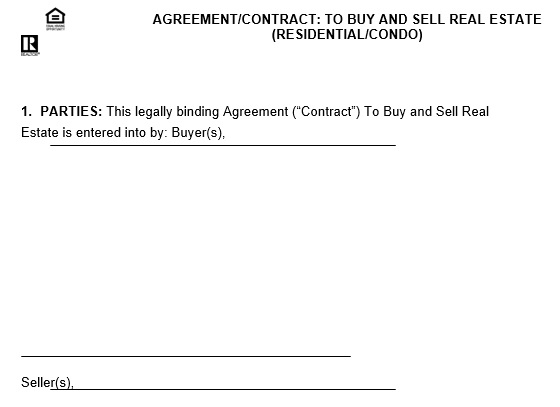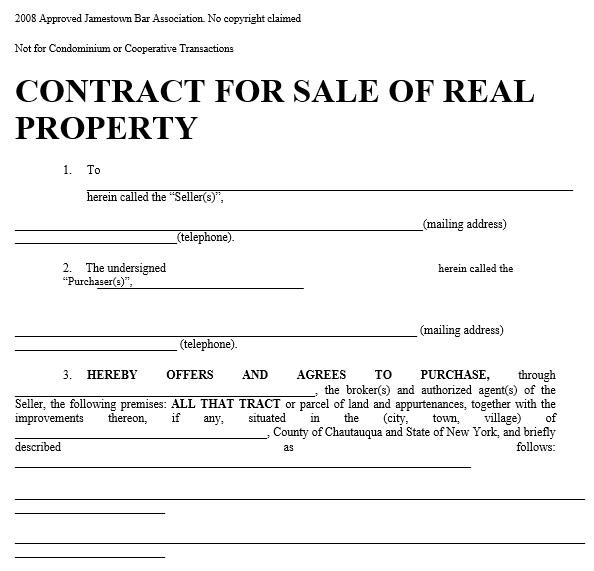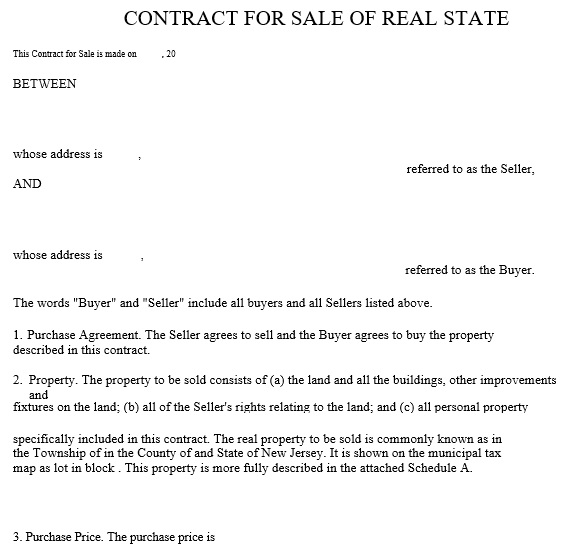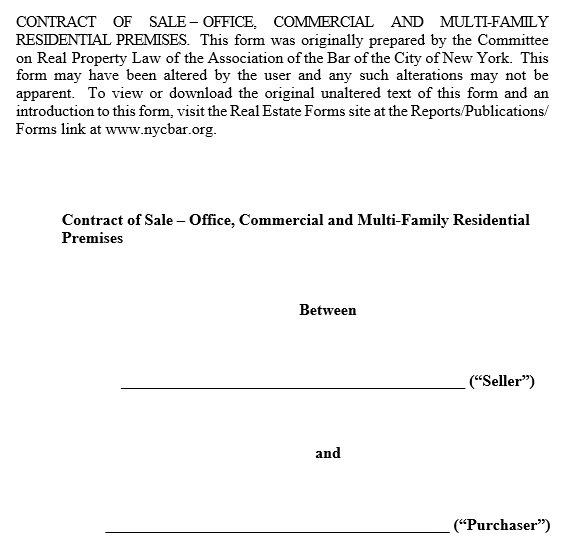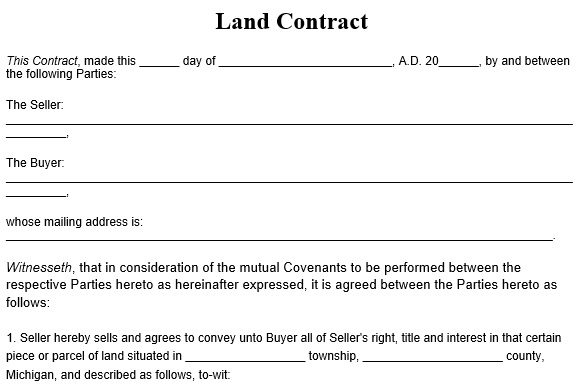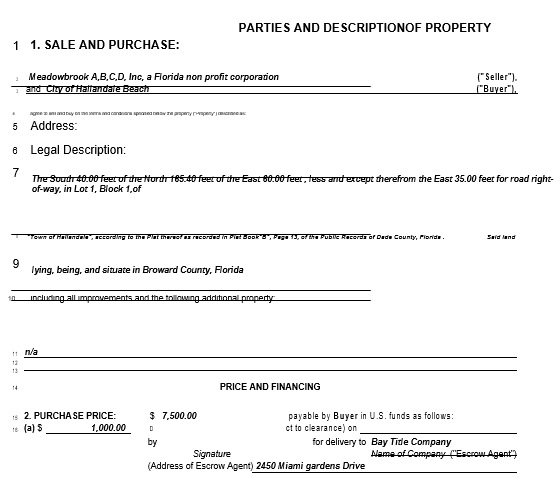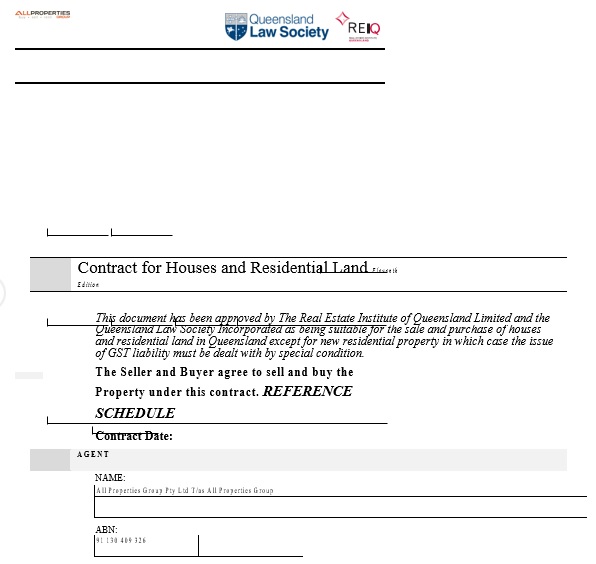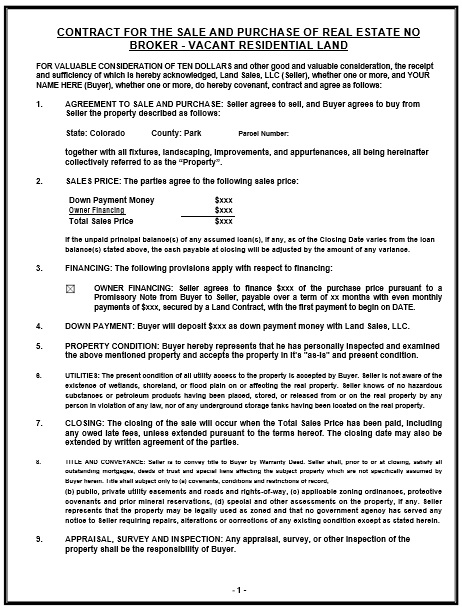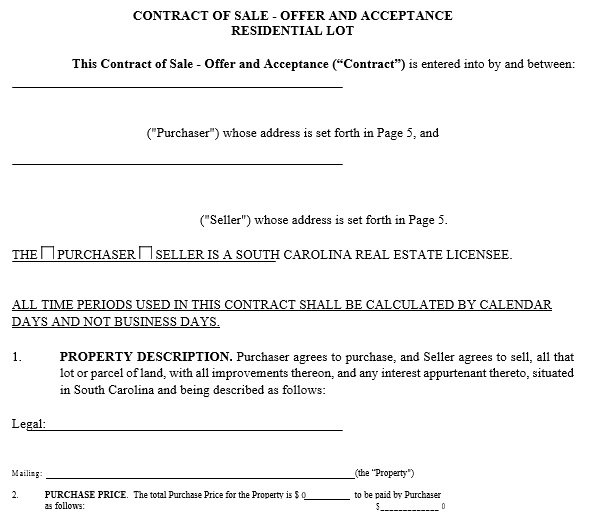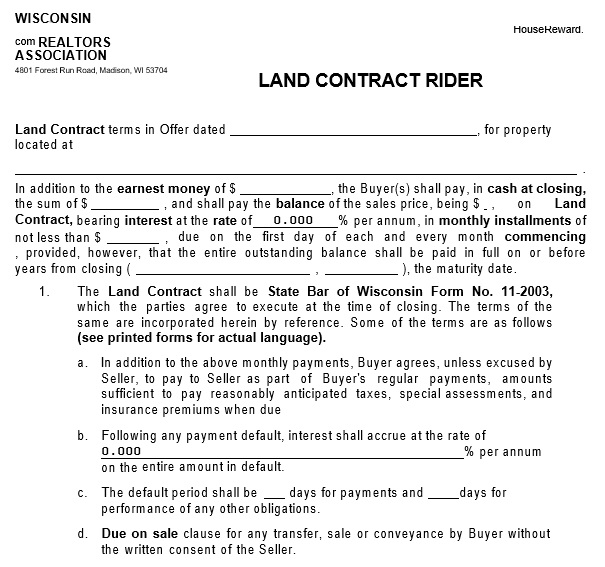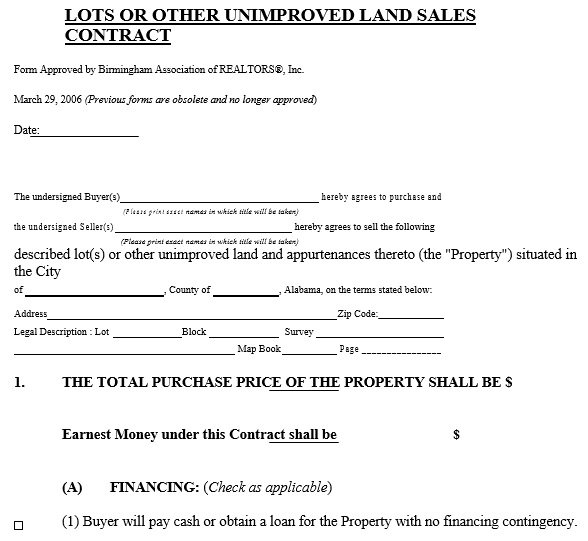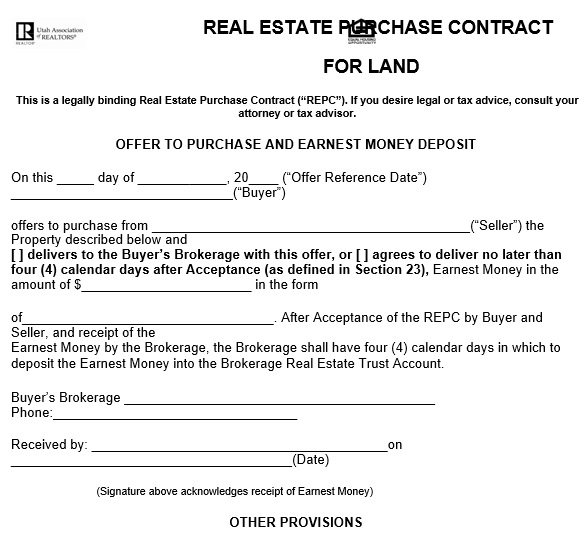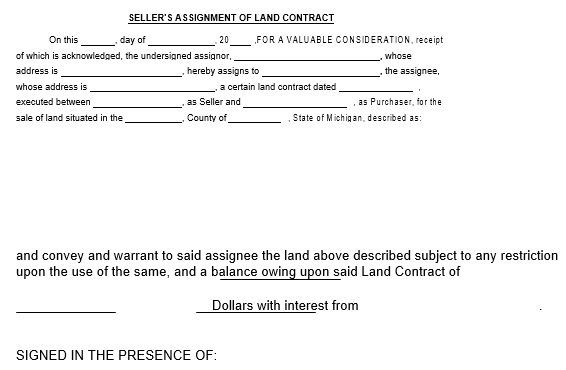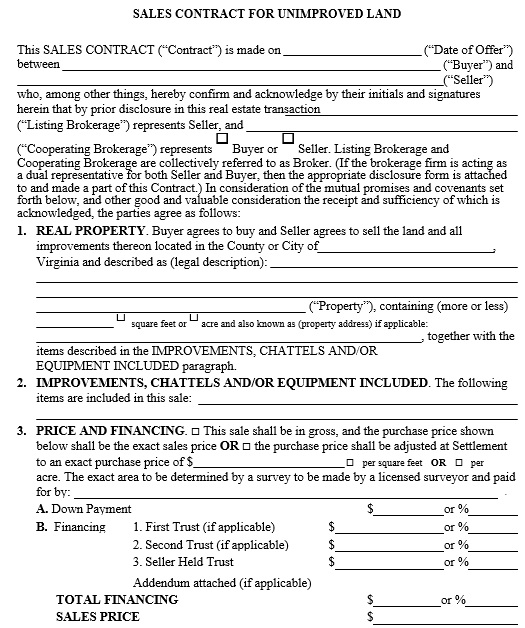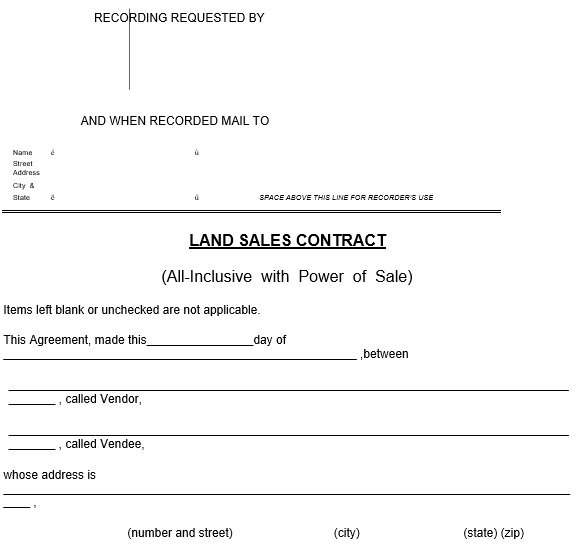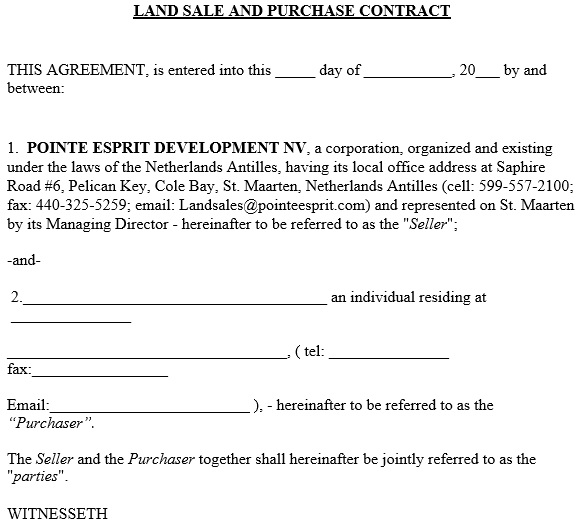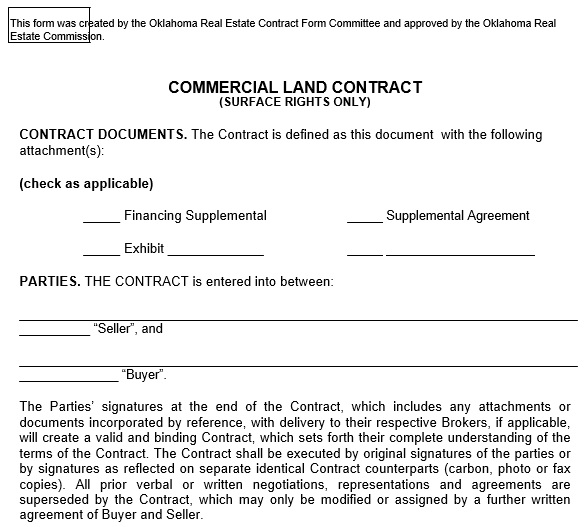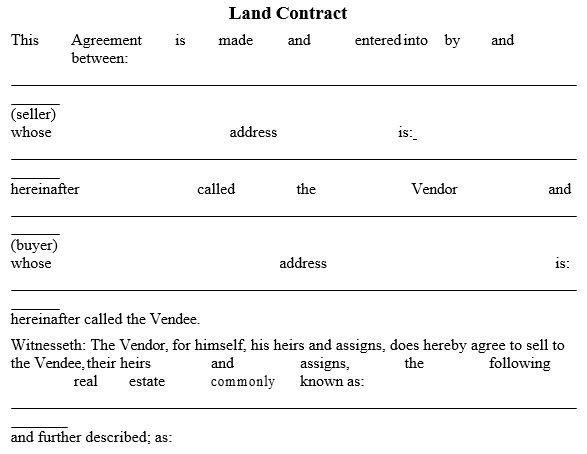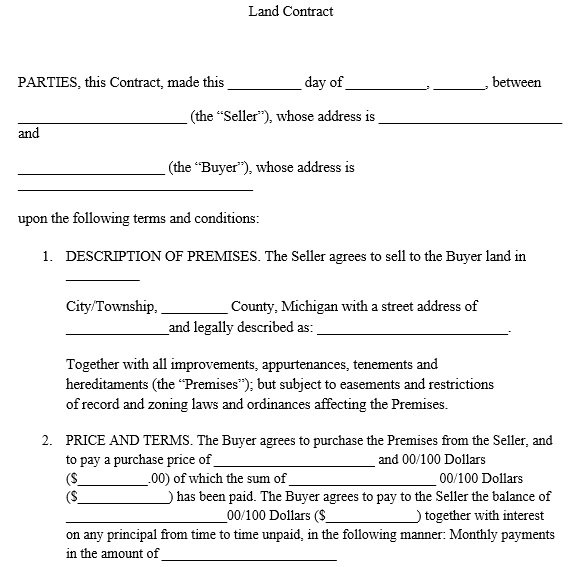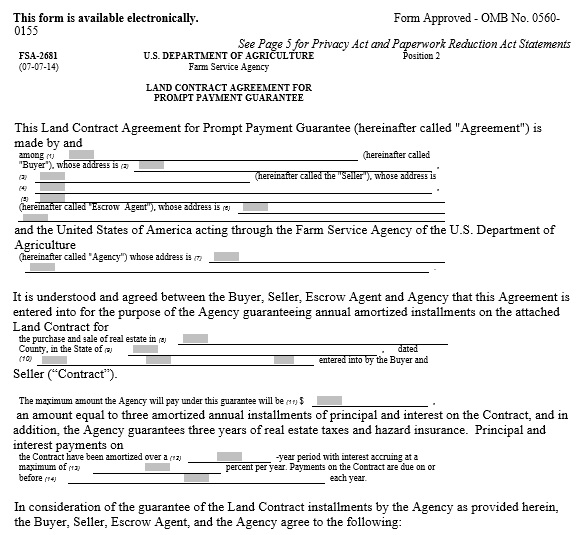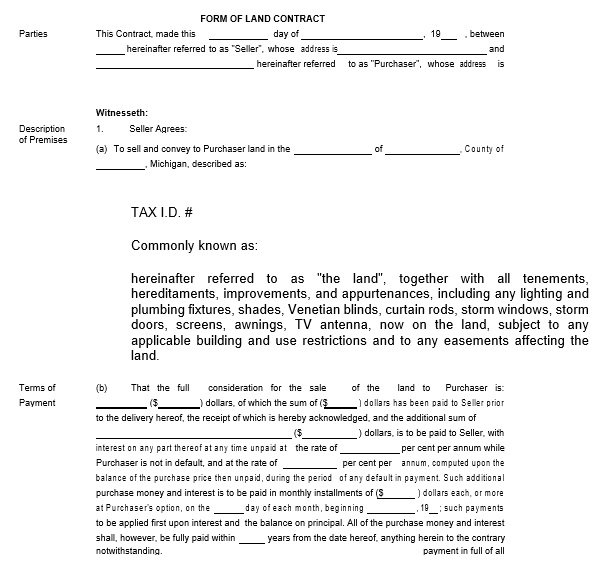A land contract form is a legally-binding document filled out by someone who has purchased some sort of property transferred to them by the seller. This document is also referred as a land contract agreement. The seller has signified his intent with this contract to accept payments from a buyer for a purchaser he owns. The seller transfers the property’s title to the buyer when the buyer has paid the loan to the property in full.
Table of Contents
- 1 What is a land contract form?
- 2 Different types of land contract forms:
- 3 How does a land contract work?
- 4 What to include in a land contract form?
- 5 Who have to pay property taxes on a land contract?
- 6 Pros of a land contract form:
- 7 Cons of a land contract form:
- 8 Conclusion:
- 9 Frequently Asked Questions (FAQs)
What is a land contract form?
A land contract form is a type of real estate transaction. The seller here provides the purchaser a unique financing option. Then, the latter pays the former the price they had agreed-upon for a set amount of time in installments. Likewise a typical house mortgage, these payments are provided to the seller a combination of both the principal amount and interest. Usually, at the end of the agreement, a balloon payment comes into play.
Different types of land contract forms:
Let us discuss below the most common types of a land contract forms;
Installment sale land contract
The property’s title staying with the company or will get held in guarantee with a lawyer or title company are involved in this type of land contract. The buyer receives the title of the property after paying complete purchase price, however, they make payments to the seller on daily basis.
Wraparound or all-inclusive land contract
For a buyer, when new mortgage wraparound an already existing mortgage that a seller still holds then this type of land contract comes into handy. Definitely, it consists of a higher balance and larger monthly payments. On the basis of the purchase price of the mortgage from the bank, the buyer would decide to make monthly payments. In such a scenario, the seller allocates the property’s title to the buyer. After that, he extends his mortgage. Then, he moves forward to the monthly payments on an existing mortgage.
All-inclusive land contract is one type of wraparound contract. The seller in this type of contract deeds his property to the buyer. After that, the seller takes a note. The buyer in this method on the note provides the payments to the seller. In turn, the seller provides payments on an existing mortgage.
Straight land contract
In this type of contract, the amount paid by the buyer to the seller is similar to the amount that the seller pays to an existing mortgage. Since the buyer’s mortgage mirrors the existing mortgage of the seller so this is also referred as a mirror wrap.
How does a land contract work?
A land contract is a written legal agreement or contract and a type of seller financing. It is used for the purchase of real estate such as a house, a commercial building, or any other real estate property. It is identical in substance to mortgage. But, it varies in the sense that rather than of the purchaser borrowing funds from the bank to buy the property, the buyer makes real estate payments to the owner unless the whole price gets fully paid.
On the land contract form, both the buyer and the seller will affix their signatures showing that they both agreed upon the terms and conditions. The property’s legal title gets transferred by the seller to the buyer via some kind of deed when all of the terms and conditions have been fully satisfied, particularly the payment terms over the given interval of time.
The buyer is considered to possess an “equitable title” during the period when he makes his payments to the seller. The buyer has an interest in the property as a holder of such title when the seller gets precluded from offering the property to anyone else. From placing the property under any encumbrance or lien that interferes with the buyer’s interest, the seller is also precluded.
Until the buyer makes the last payment as stipulated in the land contract agreement, the property’s “legal title,” still belongs to the seller. The deed of the property gets filed with the correct government office as soon as the buyer makes the last payment and all of the land contract’s conditions have been fully fulfilled. After this, the buyer becomes officially new property owner.
What to include in a land contract form?
When the buyer signs a land contract template, it indicates the same thing as signing a mortgage. But, it isn’t similar as a lease contract form. It is designed for the rental of properties owned by a landlord. A land contract form is an agreement to purchase the property without applying for a loan as the seller gives the financing.
Furthermore, the seller must transfer the ownership to the buyer after the final payment. This document makes the transaction legally-binding and official. Other names for land contract form are;
- Agreement for deed
- Land installment contract
- Installment sale agreement
- Contract for deed
A land contract includes the following information;
- The title or heading of the contract
- The seller and buyer complete names, addresses, and signatures
- An official description of the property as specified in a recent ownership affidavit. From the recorder’s office on the area where the property is both registered and located, the buyer may request this form.
- The payment terms of the agreement.
- The date of the agreement.
- The agreement’s terms, limitations, and conditions.
- The buyer and the seller agreed upon date of conveyance.
Who have to pay property taxes on a land contract?
The seller would receive monthly payments during the duration of the land contract agreement. These payments consist of the principal amount and interests. Here, escrow may get developed too. This way, the insurance and tax payments provided by the buyer will go into an account. Thus, when the due date comes, the payments are automatically made.
Pros of a land contract form:
- The land contract form makes the buyer able who doesn’t have get traditional financing to buy the property. Banks generally provide a loan to a buyer if he qualifies for it. The buyer has to deal with any credit issues he has in order to qualify such as reducing his debt-to-income ratio. The buyer, on such a loan, also has to save up for a down payment. In case not, then a land contract can be another option.
- For the seller, a land contract is always a win-win situation. He obtains rent for the property for an agreed-upon period of time. After that, sells the property for an agreed-upon price. The seller has the right to evict the buyer if he fails to pay on time.
- There will be fewer buyers in the market with high interest rates and tight credit. This condition is extensively appealing to buyers who under normal conditions cannot purchase a property.
Cons of a land contract form:
- The seller may still make payments to a financial institution unless he is the outright owner of the property. The property could get foreclosed upon by the lending institution in case he cannot make his payments regularly. Also, the poor purchaser will end up with no property and a worthless document.
- Land contract usually covers a myriad of issues. For example, what will happen if before the balloon payment’s due date the market significantly depreciates or appreciates? Careful considerations must go into coming up with the terms and conditions of the binding agreement as a land contract is more complex than the standard way of home purchase.
- At times, the contract can be very ambiguous. The buyer loses “his property” when the due date of the balloon payment comes and the buyer cannot secure a loan to pay.
Conclusion:
In conclusion, a land contract form is a legally binding agreement between the seller and the buyer regarding a specific piece of land. It is a relatively straightforward contract. It is a type of seller financing used for the purchase of real estate.
Frequently Asked Questions (FAQs)
You have to comply with the terms of the land contract in order to become the owner of the home under a land contract. You have to make specific amount of payments to the seller as per the land contract. When you have made all the payments, the seller provides you the deed to the home.
If a buyer break or defaults a land contract then the seller has the right to file a “land contract forfeiture” in court. By filling the forfeiture, the seller protects himself against loss.
Cancellation of a contract may vary from state to state. Every state has its own defined circumstances under which a contract can be cancelled. Some states may allow buyer or some may seller to cancel an installment land contract for any reason.

